THE MIMIR
IT'S MY TREAT
WHY CAN CATS ALWAYS LAND ON THEIR FEET?
ARE YOU A NETIZEN?
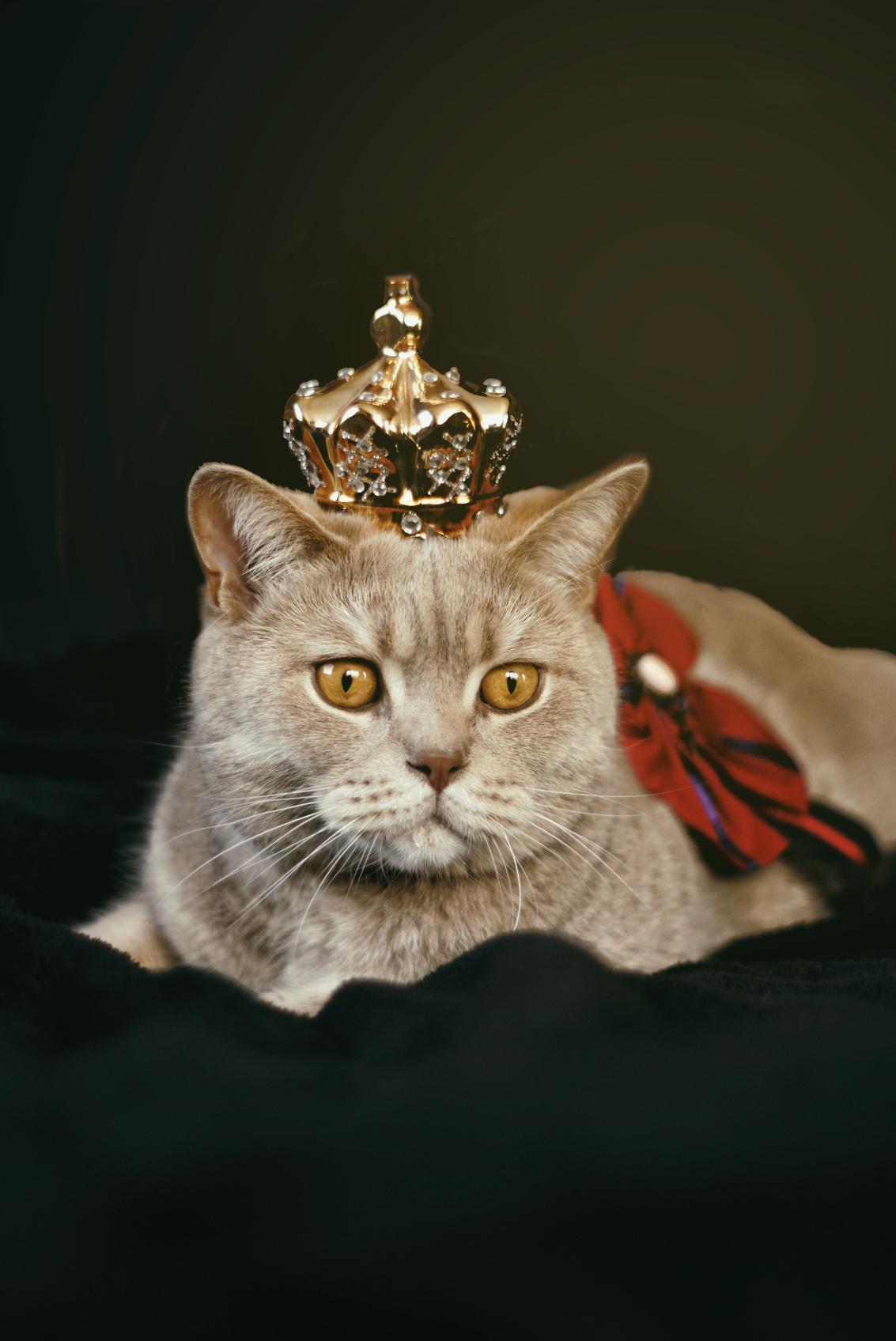

IT'S MY TREAT
WHY CAN CATS ALWAYS LAND ON THEIR FEET?
ARE YOU A NETIZEN?


In this issue you will find a variety of topics to help you understand the rich Chinese culture better Food plays a vital role in Chinese culture, and it is often seen as a way to bring people together. Whether it is a family gathering, a business meeting, or a casual lunch with friends, food is an integral part of any social occasion. You can make yourself hungry by focusing on articles one, two, and four.
Focused on your health? Articles two and six offer some insights into popular sports and even offer advice as to how you can fall asleep faster. Or maybe you just really like cats! Cats are often seen as symbols of good luck and prosperity Many people find it fascinating that cats have the ability to land on their feet, even when falling from great heights. This is due to the cat's ability to adjust its body position in mid-air, which allows it to land safely You can read more about this in article seven.
In recent years, new Chinese slang terms have emerged, which are becoming increasingly popular among young people. These terms are often used in social media and messaging apps, and they reflect the changing attitudes and values of Chinese society. Learn a new slang term in article five.
Being a student from China in the United States can be challenging. It can be difficult to adapt to a new culture, and many students struggle to find their place in American society Read about Lin Feng’s story in article eight
No matter your interests, you will find an article that will speak to you and help you learn something valuable to apply to your life! Happy reading
Abigail Hansen English Editor of TMM
Abigail was raised a small town girl in Wyoming She loves being outside which makes her current home in Utah the perfect place for her to camp, hike, and kayak in the Summer and hit the ski slopes in the Winter. She loves her family more than anything and spends as much time with her husband and son as she can. Writing has come naturally to Abigail since she was young and she enjoys writing about a variety of topics such as language learning, parenting, personal finance, and business She graduated from university in communications with an emphasis in public relations and a minor in business. Learning is a passion of hers and is one of the biggest reasons she loves writing because it always pushes her to learn more about many different things

Hello everyone, I am Teacher Jingjing. I hope we can learn Mandarin together happily. I was born in China and graduated from the best law university in China After that, I came to Australia to engage in Chinese education, and also taught law and economics to Australian university students My students come from all over the world, including doctors, lawyers, and also children from different culture background. I enjoy communicating with them and learning from each other. I hope I can show you the wonderful world of Mandarin and Chinese culture



Dada is a high school straight-A student from China. He loves science, the universe, and everything about aliens.

a high ange s e U.S. eling a about es. She da is ledge
Lily is a student in the same high school as Amy. Her mom is Chinese and her Dad is from Ireland. Like her mom, Lily enjoys reading and cooking.


Kevin is an exchange student from Australia. He likes sports and cars. He thinks Amy is the cutest girl ever.

Food is central to many cultures with Chinese culture being no exception. Chinese people love to “treat their guests” and an invitation to dinner could mean someone is asking a friend for help, showing gratitude, building a friendship, or celebrating a special occasion such as a birthday. Regardless of the purpose, being invited to share a meal with a Chinese person means you are special to that person.





to give a dinner party / to entertain guests
/ to invite to dinner
thing / stuff / person
important / significant / major
This article helps us understand the culture of "treating guests" well in China. If you have a Chinese friend who wants to treat you to dinner, it means that he wants to make friends with you. Sometimes friends help us, and we will invite you friends for dinner. Pay more attention to the use of "如果...就... " when reading articles. If you have a friend you like or a friend has a coming birthday, then it’s a good chance to treat your lovely friend!
to pay / to invest (energy or time in a friendship etc) 如
if / in case / in the event that
gift / present
after / later / afterwards / following / later on / in the future
语法:如果...就...
“如果……就…… ”是 个连词组合,意思是if… then…
“如果 就 ”is a group of conjuction words which means if then…

Structure: 如果 + words/phrase/sentences + 就 + words/phrase/sentences the clause following 如果 is a hypothesis and the clause after 就 is the result of the hypotjesis
Example:
a. 如果你饿了,我们就出去吃饭。 If you're hungry, we can go out to eat.
b. 如果我⼋点还没回来,你就先去睡觉。
If I'm not back by eight o'clock, you can go to bed first.
Edit :Ji ji
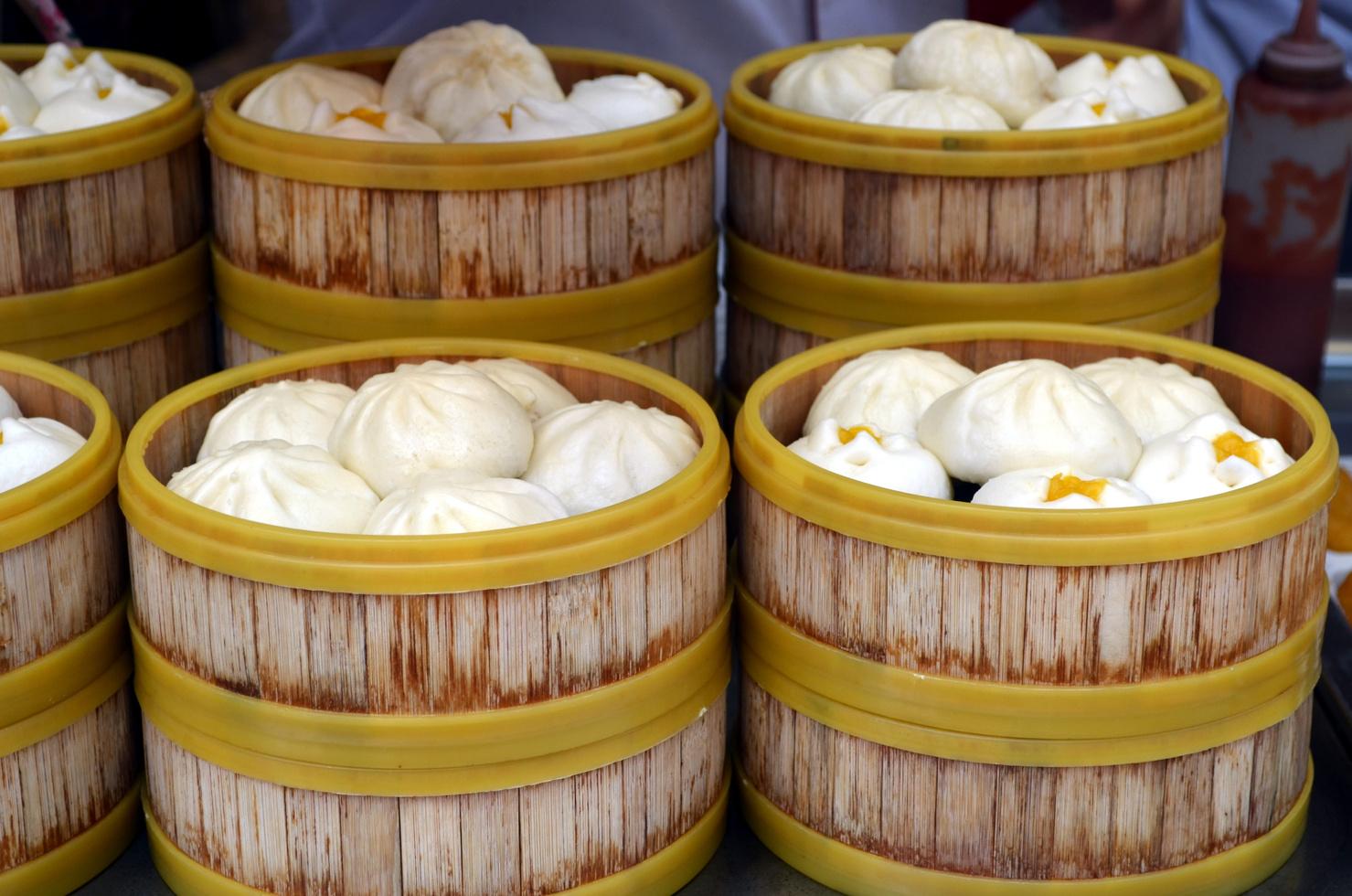
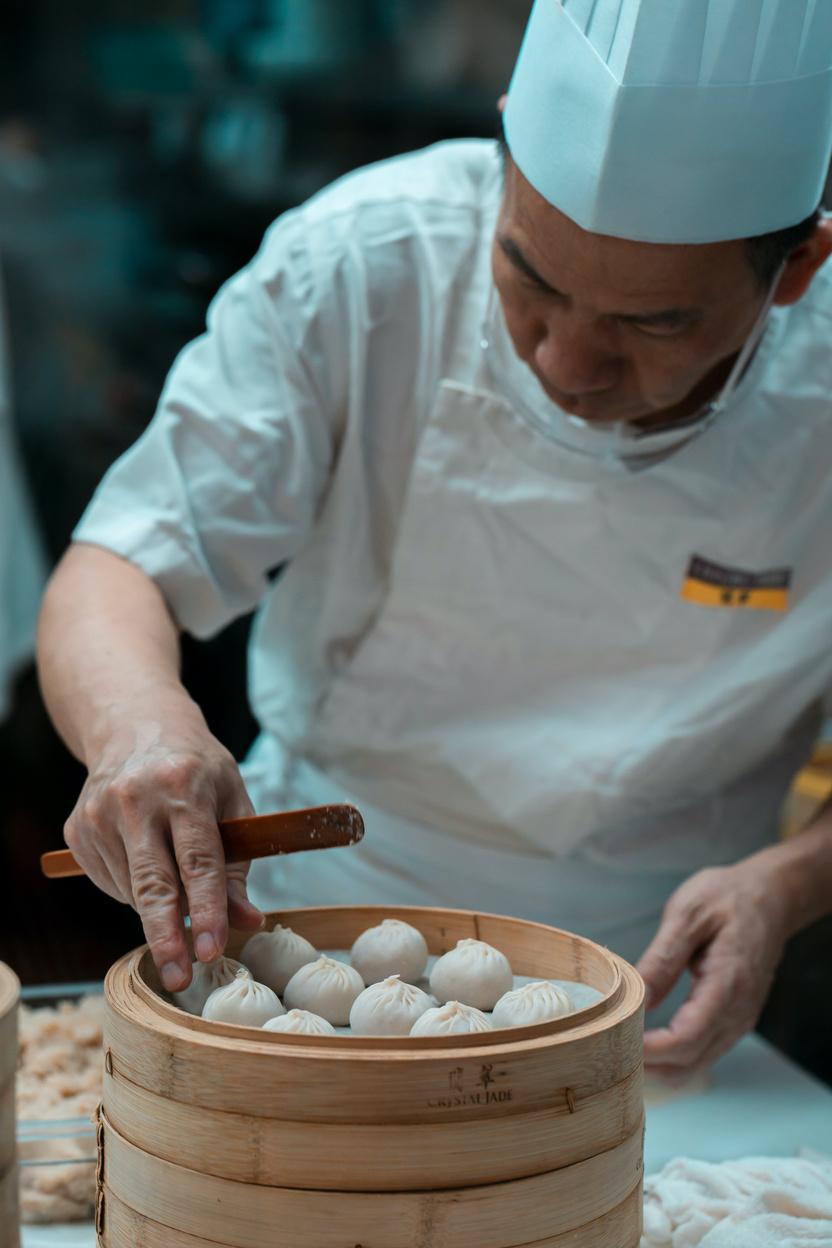
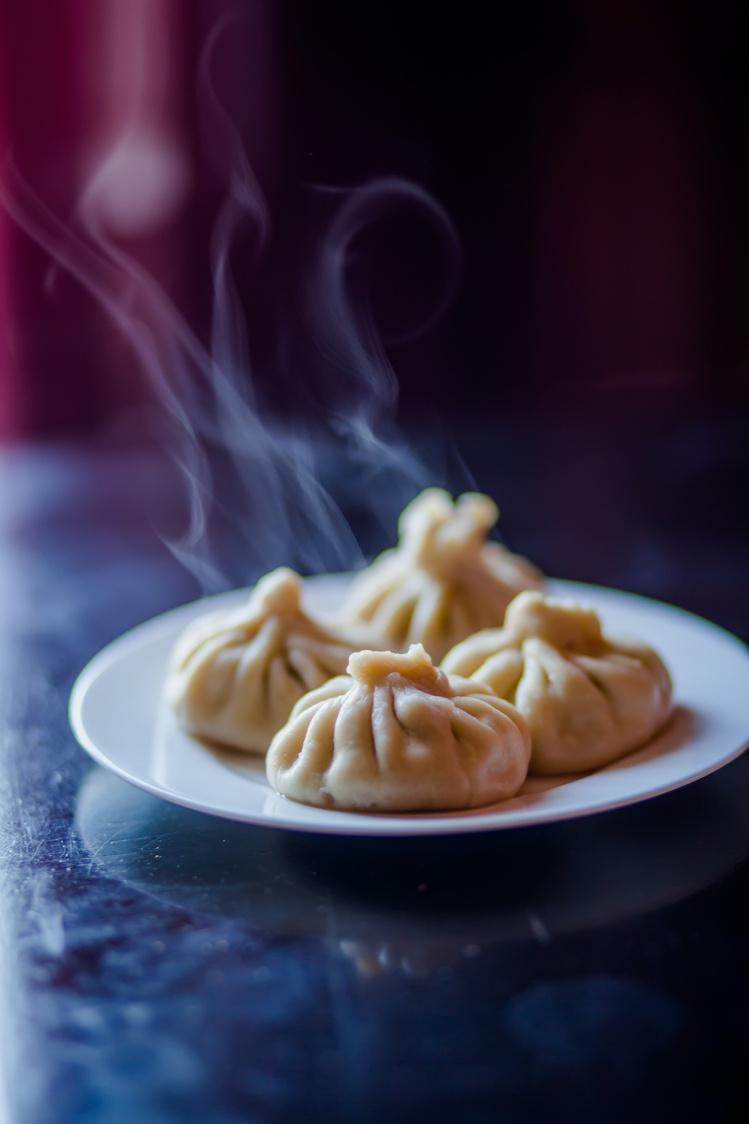

Amy learns about the history of Steamed Buns or “Xiaolongbao” from Lily. They begin their conversation when Lily offers Amy a steamed bun. Amy is impressed by the soft bread and the savory filling of delicious meatballs She had seen them when she first came to China but hadn’t tried one until now. Lily explains that the bun is made in a steamer that is made from bamboo and wood chips. Steamers are typically small, measuring around 18 cm to 25 cm. Additionally, Xiaolongbao is sometimes referred to as ‘dragon bread’ due to the fact that dragons are well-liked in Chinese culture. Amy again expresses her newfound love for “Chinese dragon bread” and Lily shares with her that she can find plenty of it on the side of the road as people are selling it
艾

味道。这个包⼦很软,⾥⾯的⾁丸也很⾹。我刚来中国


的时候⻅过这种⼩包⼦,不过 直没有吃。 ”

莉莉

⾹
xiāng
fragrant / sweet smelling / aromatic / savory or appetizing / (to eat) with relish / (of sleep) sound / perfume or spice / joss or incense stick
味道

wèi dao
flavor / smell / hint of
⼩吃
xiǎo chī
snack / refreshments
蒸笼
zhēng lóng
steamer basket (e.g. for dim sum)
⼯具
gōng jù
tool / instrument / utensil / means (to achieve a goal etc)
⻰ Lóng
surname Long
语法:因为+reason+所以+result
“因为...所以.... “是⼀组表⽰因果关系的连接词。This is a group of conjunctions expressing cause and effect The clause after 因 为 is the reason and the clause after 所以 is the result of the reason mentioned before.
Structure:
因为+reason+所以+result,
Example:
a. 因为艾⽶⽣病了,所以她今天没来上课。
Because Amy was sick ,so she didn’t come to school today.
b 因为我喝了过期的⽜奶,所以拉肚⼦了。
Because I drank expired milk, so I had diarrhea.
相信你们都吃过中国的饺⼦,今天我们学习的⼩笼包和饺⼦很像,但是它和饺⼦也有些不
样,⼩笼包的形状是圆圆的,饺⼦是⻓⻓的。饺⼦可以⽤⽔煮着吃,但是⼩笼包只能放 在蒸笼⾥蒸着吃。在我们的⽇常⽣活中我们经常
I believe you have all eaten Chinese dumplings. The Xiaolongbao we are learning today is very similar to dumplings, but it is also somewhat different from dumplings. The shape of Xiaolongbao is round, and the dumplings are long. Dumplings can be boiled and eaten, but Xiaolongbao can only be steamed in a steamer. In our daily life, we often use "因
to explain the causal relationship before and after. We can try to use " 因
to explain the reason we name it Xiaolongbao. Try telling it to your friends, they will find it interesting too! Of course, you can also eat Xiaolongbao together!
Do you know the meaning behind the term “people who eatmelons?”Itdoesn’tmean someone is actually eating melons but rather a slang termthatreferstoahottopic or something that everyone is talking about. Follow along with Amy and Lily’s conversation to figure out whatthey’retalkingabout.
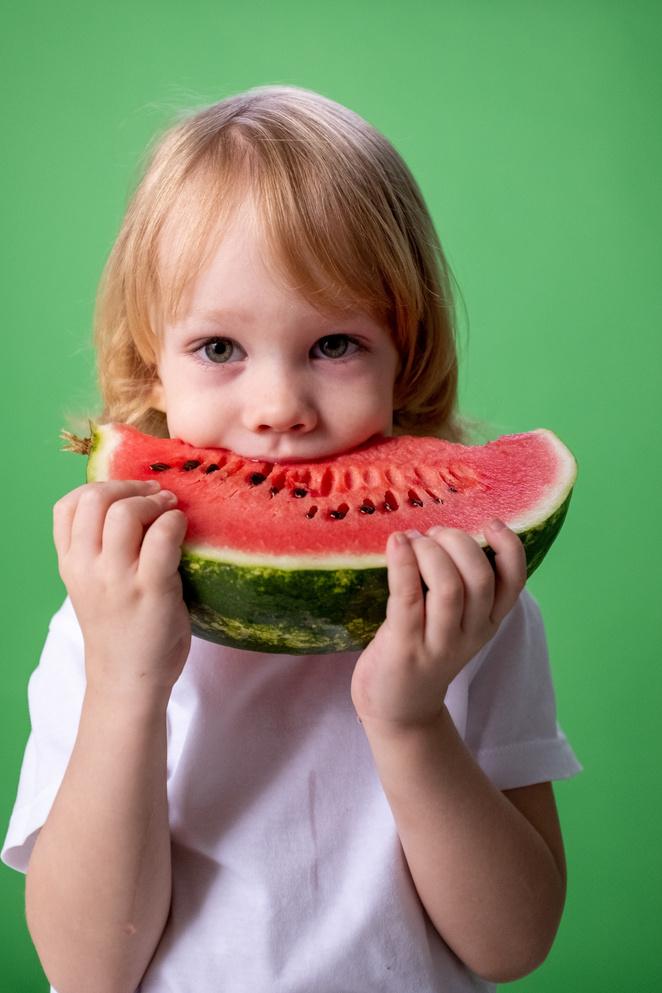

They discuss a famous musician coming to perform, then receive news that their friends Dada and Kevin are also performing at the event. “Melon-eaters” are also very common on the internet where peopleliketoexpresstheirviews.
 Editor:Abigail
Editor:Abigail
Q 1:你知道很多⼈在⼀起讨论⼀件事情叫做什么么?
Q 2:你会想要做⼀名吃⽠群众么?
你觉得“吃⽠群众”这个词是什么意思呢?是说 些⼈在吃⽠吗?
这是最近⼏年⼤家会⽤的新词。我们把 个被⼤家讨论的事情叫
做“⽠” 。如果⾮常多的⼈都讨论这件事,我们就叫它“⼤⽠”
今天晚上学校会举⾏ 个⾳乐晚会,莉莉和艾⽶ 起去。
艾⽶:莉莉,你知道今天晚上有什么节⽬吗?
莉莉:我不知道。
艾⽶:听说 个很有名的⾳乐家会来表演。
艾⽶给莉莉介绍了这位⾳乐家的故事,莉莉有问题要问艾⽶。
莉莉:听你说这个⾳乐家⾮常有名,他应该很难邀请。所以,这个
⽠熟了吗?
在,让我们听听莉莉和艾⽶的对话,了解⼀下怎么⽤“吃⽠群众”这 个词吧! 这时候,艾⽶的⼿机响了,她接到了同学的电话。放下⼿机后,
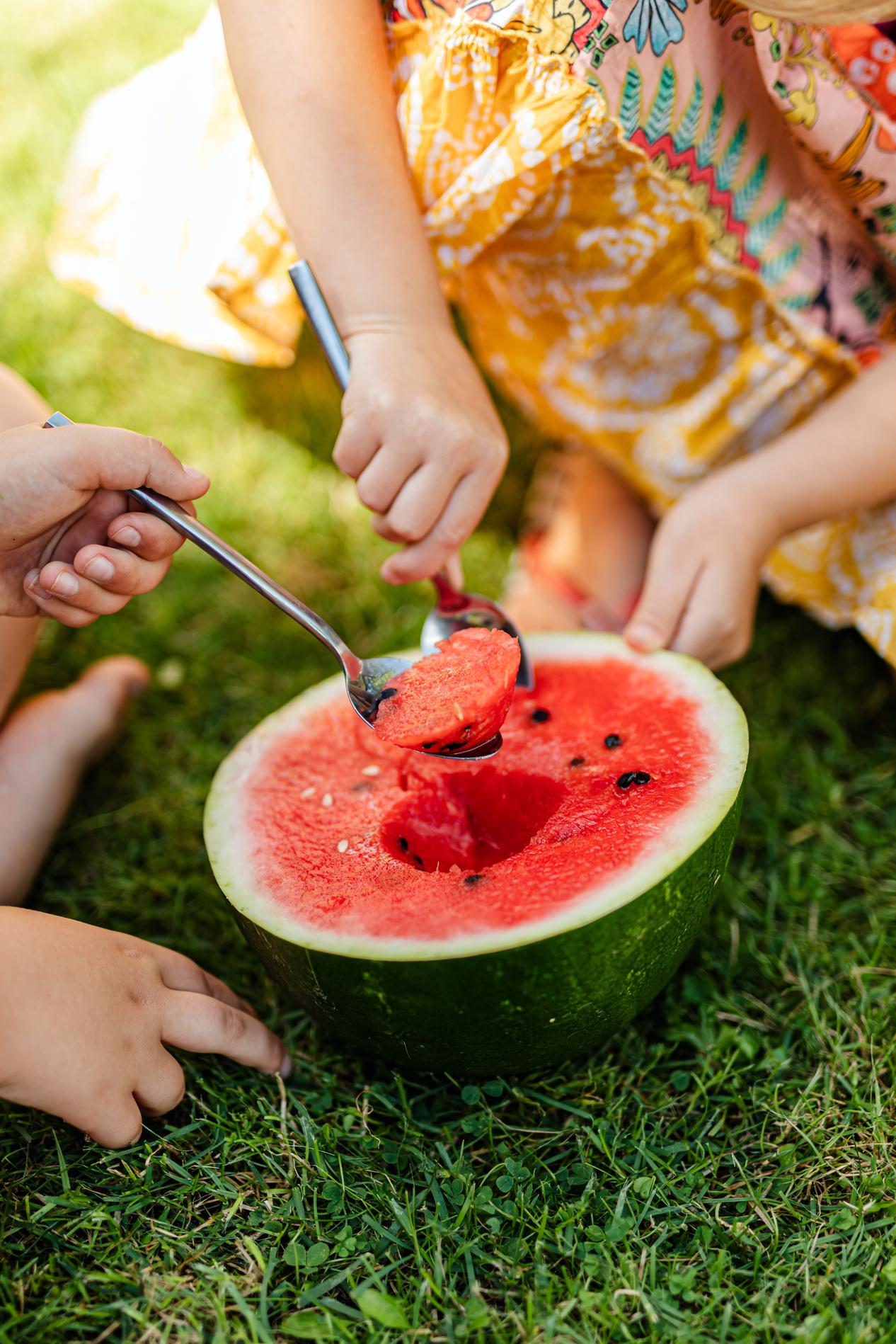
艾⽶:不知道。如果是真的,我 定要去最前⾯看表演。
艾⽶看上去很⾼兴。
艾⽶:我的同学告诉我,今天晚上达达和凯⽂也要表演。达达会
跳舞,凯⽂会唱歌。
莉莉:真的吗?我不知道他们还会唱歌跳舞。
艾⽶:哈哈,是不是真的,到了晚上我们就知道了!
莉莉:如果他们跟这个有名的⾳乐家 起表演,这个晚会就好玩
了!
艾⽶: 是啊,这样我们的朋友也是有名的⼈了!
莉莉:我们真是吃⽠群众!
莉莉:是吗?这真是 个⼤⽠! 现在,⼈们很喜欢在⽹上“吃⽠” 。有的⼈会说出⾃⼰的看法,有的⼈ 只看不说话。但如果他们都对“吃⽠”有兴趣,那么他们就都是“吃⽠群 众” 。 作者: 阿雪
群众 qún zhòng mass / multitude / the masses
讨论 tǎo lùn to discuss / to talk over
熟 shú ripe; mature / thoroughly cooked; done / familiar; acquainted / experienced; skilled / (of sleep etc) deep; profound / also pr. [shóu]
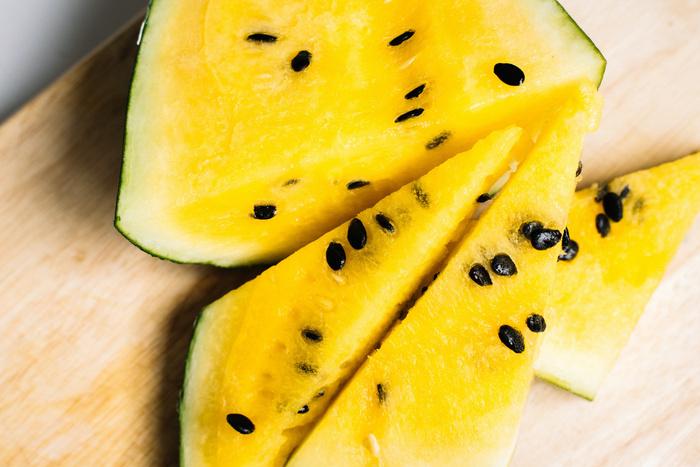
举⾏ jǔ xíng to hold (a meeting, ceremony etc)
晚会 wǎn huì evening party
节⽬

jié mù program / item (on a program)
表演 biǎo yǎn play / show / performance / exhibition / to perform / to act / to demonstrate
介绍 jiè shào to introduce (sb to sb) / to give a presentation / to present (sb for a job etc) / introduction
邀请 yāo qǐng to invite / invitation
语法:这真是... “这真是... ”表⽰情调的语⽓。which means it is really a/it is such a ….Normally used to emphasize the sentences.
Structure: 这真是 + n /adj
Example:
a. 这真是个好消息。
It’s such a good news.
b. 外⾯下⾬了,这真是太好了。我最喜欢下⾬天了。
It was raining outside, which was great. I like rainy days best.
TEACHER'S NOTE TEACHER'S NOTE TEACHER'S NOTE
读了这篇⽂章才知道原来西⽠和吃西⽠还有这样有趣的意思!这就是我们现
在正流⾏
After reading this article, I realized that watermelon and eating watermelon have such interesting meanings! This is called “ internet lingo” which is very popular recently. If we discuss one thing together, then we are the people who eat melons! Are there any delicious melons around you recently? Do you want to sit down and eat melon with your good friends?
Lin Feng went to high school and college in the United States and surprises his friend when he says that he regrets not going to a Chinese University. Lin Feng said he missed the lively atmosphere and comradery of Chinese schools and that in the United States, everyone is very independent and not as integrated together. Lin Feng mentioned many things that
he missed about Chinese culture and the education system there. Things like the lively atmosphere, the dating culture, the lack of stereotypes against Chinese people, and more. Think about what you would miss about your home country if you were living abroad. There might be more than you think!

 Editor:Abigail
Editor:Abigail
错过了中国的⼤学,
这是我觉得很遗憾的
事情。 “林枫说完静静
地看着我。
我 和 林 枫 已 经 很 多 年 没 有 ⻅ ⾯
了,⾼中的时候他就去了美国。
现在,我们都已经⼤学毕业了。
我很惊讶他会这么说。因为很多
中国⼈觉得,不⽤参加中国的⾼
考、可以来美国上⼤学是 件很 幸 福 的 事 情 。 为 了 考 上 好 的 ⼤
学,中国⼈的⾼中⽣活⼤都过得 ⾮常⾟苦。
”为什么你会觉得没有上中国的⼤ 学是遗憾的事情呢?“我问他。

可能我很喜欢中国⼤学这种热闹
的感觉。在美国我很独⽴,当然也
有很多朋友和很多事情做,不过这

种热闹的感觉会少 些。 “
我⼤概明⽩了他的意思,但也可能
没有完全明⽩。不过这不重要。我
⼜跟他聊起他的感情⽣活。
” 有 天 我 跟 我 以 前 个 ⼥ 朋 友
说, ‘明年我们都⼆⼗ 岁了,我
想⽤更多时间做 些重要的事情,
这样后年我就可以有更多选择。明
年,你也可以开始为以后做做准备
了
’ 。她很惊讶地跟我说, ‘你是怎
么了?出了什么问题吗?为什么要
想 明 年 的 事 情 ? ’ 后 来 我 就 明 ⽩
了,那个时候,⼥孩⼦们更多是在
享受当下的⽣活,
不太去想以后的事情。 “
”⽽且我发现,那个时候交⼥朋友是
⾮常快的,不过分⼿也很快。她觉
得新鲜感过去了,没有那么喜欢你
了 , 就 分 ⼿ 了 。 所 以 后 来 我 也 在
想,我想要什么样的感情。当然喜
欢是很重要的标准,但不是全部。 “
其实,林枫有和其他中国留学⽣不 样的地⽅和体验。他是因为击剑
这件事上的⼤学。击剑也让他颠覆
了美国⼈对中国留学⽣的认知。
”我美国同学眼中的中国留学⽣是:

数学能⼒⾮常好、家⾥都很有钱,
但是不愿意跟他们做朋友。⽽且,
中国留学⽣的体育都不是很好。
他们是很特⽴独⾏的 群⼈。但我不
样,我的体育是⾮常好的。我也发现,在
美国的⾼中,如果 个⼈的学习很好,但
是体育很差,他的朋友就⾮常少。但是,
如果 个⼈学习不好,但是体育⾮常好,
他 就 会 是 最 受 欢 迎 的 ⼈ , 会 有 很 多 朋

友。 “
” ⽽ 且 在 美 国 , 很 少 看 到 中 国 ⼈ 练 习 击 剑。我⽐赛的时候也会被问是不是有美国
国籍。我开始不习惯,不过后来就习惯
了。其实开始我⽗⺟只是在⾦钱上⽀持 我,但不太⿎励我 直学习击剑。后来我

拿到了很多⾦牌,最终也拿到了全国⾮常
好的名次,他们就不说什么了。这件也事
让我以后更坚定地做⾃⼰想做的事情。 “
最后,我们聊到了未来想做的事情。林 枫再次让我很惊讶。
”我要回国学习中医了。其实我爸妈都 很不理解。确实,他们花了⾮常多的钱

让我去国外读书,最后我反⽽回国学习 中医。其实他们确实给了我很⼤的⾦钱
⽀持,我⼀直都没有因为钱的事情担⼼
过 。 ⾦钱没有让我觉得 ⾃ ⼰ ⽐ 别⼈ ⾝
份、地位更⾼,⽽是让我想做 些事情
去帮助别⼈。我⾝边很多⼈都在聊⼈⽣
的价值和意义,我觉得做 个有价值的
⼈就是⼈⽣的意义。 “林枫说完,很坚

定⼜很开⼼地看着我。
作者:⾖⼦
Q1 : 为什么林枫觉
得错过了中国的⼤学 很遗憾?
Q2 : 你觉得什么样
的⼈⽣才有意义?
错过 cuò guò to miss (train, opportunity etc)
遗憾 yí hàn
regret / to regret / to be sorry that
惊讶
jīng yàamazed / astonished / to surprise / amazing / astonishment / awe
热闹 rè nao
bustling with noise and excitement / lively
独⽴
dú lì
independent / independence / to stand alone
当下 dāng xià
immediately / at once / at that moment
/ at the moment
享受 xiǎng shòu to enjoy / to live it up / pleasure
击剑 jī jiàn fencing (sport)
颠覆 diān fù
to topple (i.e. knock over) / to capsize / fig. to overturn (a regime, by plotting or subversion) / to undermine / to subvert
认知 rèn zhī cognition / cognitive / understanding / perception / awareness / to be cognizant of / to recognize / to realize
特⽴独⾏ tè lì dú xíngto be unconventional / independence of action
国籍 guó jí nationality
坚定 jiān dìng firm / steady / staunch / resolute
价值 jià zhí value / worth / fig. values (ethical, cultural etc)
语法:已经...了
“已经...了” is the basic pattern to express “already” in Chinese.
Structure:
已经+verb+了
已经⾛了, means already left

已经+(很)adj +了
已经(很)⽼了。 means already old
Example:
a. 我已经有⼥朋友了。
I already have a girlfriend。
b. 这件⾐服已经很便宜了。
The cloth is already very cheap
其实 is an Adverb, which means “actually; in fact; really”.
Structure:
A, 其实 B (B is the opposite of A, or to complement A)
⼤家都觉得这次考试很难,其实很简单。
We all find this exam very difficult, but it is very simple
Example:
a. 你看他像中国⼈,其实他是⽇本⼈。
You see him like Chinese, but he's actually Japanese.
b. 我原来以为汉语很难,其实很有意思。
I thought Chinese was difficult, but it was actually very interesting ⼈的 ⽣有各种选择,⽂章中的林枫是 个有钱⼈家的孩⼦,虽然他在美国读了⼤学,但是 他最后选择了回到中国学习中医,因为他觉得⼈的 ⽣中,能
TEACHER'S NOTE TEACHER'S NOTE TEACHER'S NOTE
There are various choices in one’s life. In this article Lin Feng is a child of a rich family. Although he went to college in the United States, he finally chose to return to China to study Chinese medicine because he felt that in his life, it is more important to help others than earn more money. What kind of life do you think is a meaningful life?

Have you ever wondered why cats always land on their feet? Scientists wondered the same thing and did extensive studies. They’d allow cats to fall and while they were falling they took continuous photos to see how they managed to land on their feet every time. First they arch their backs, roll up their front legs and twist the back of their body around and the front then follows. They do this very quickly while in the air and then extend their legs which allows them to brace themselves to land. However, when cats fall from heights that are too tall, they have a harder time turning correctly and have a harder time landing on their feet and are more likely to be injured. Cats are so amazing and it seems almost magic that they are able to land on their feet almost every time they fall.

Q 1 : 为 什 么 猫 从 ⾼ 处 跳 下 来 不 会
受 伤 ?
Q 2 : 如 果 你 有 ⼀ 只 猫 , 你 会 怎 么
照 顾 它 ?
很多⼈都喜欢猫,也喜欢养猫。


我也很喜欢猫,我家⾥就有 只。我特别
喜欢跟它玩,它也让我的⽣活变得很快 乐。
我觉得猫的⾝体很灵活,不容易受伤。不
知道你有没有发现,当猫不⼩⼼从⾼的地
⽅掉下去的时候,它都是⽤脚落地的,基
本不会受伤。这是 件很神奇的事情。
为什么猫总是可以⽤脚落地呢?
科学家们对这个问题也很好奇。所以,科
学家们让猫从很⾼的地⽅掉到地上,同
时,它们⽤照相机连续给猫拍照⽚。从这
些照⽚中可以看到,猫在下落时做了这⼏
件事:
1、 先把⾃⼰的⾝体⼸起来。
2、 猫把⾝体分成前⾯和后⾯两个部分,这
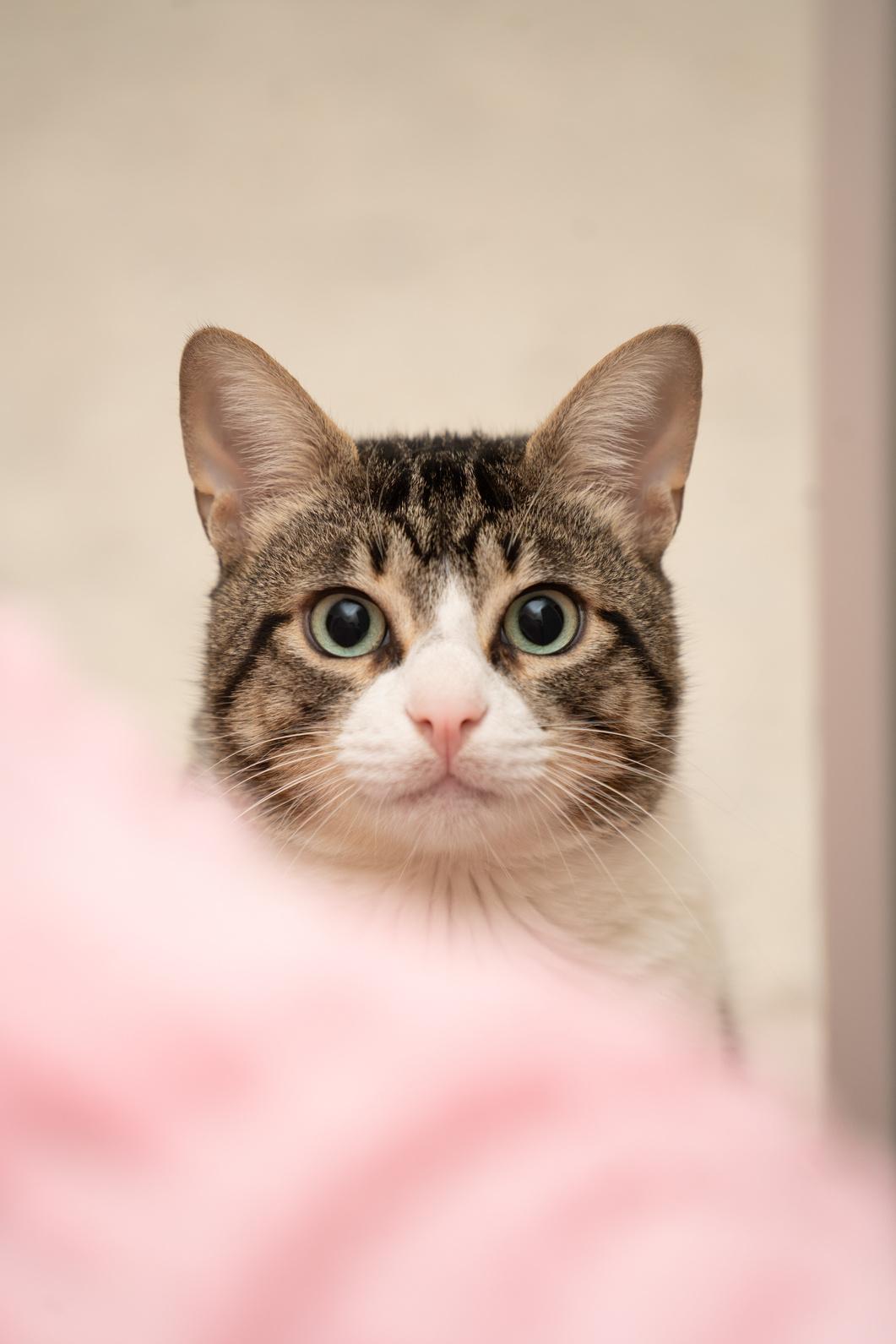

两部分都在动。在下落时,猫先卷起前腿,
伸⻓后腿。在后⾯⾝体不动的时候,快速转
动前⾯的⾝体 。
3、 做完以后,再伸⻓前腿,卷起后腿,后
⾯的⾝体也转了过来。
4、 猫落地时四条腿都会伸⻓。这样可以落 得慢⼀点,让猫有时间转好⾝体。
但是,如果猫从太⾼的地⽅掉下来,⾝体也
很可能转不好,容易受伤。
我没想到, 只⼜⼩⼜可爱的猫,竟然可以
做这么难的事。
看来,⽣活⾥还有很多神奇的事情等着我们
去发现哦。
作者:⽂萱

好奇
hào qí
inquisitive / curious / inquisitiveness / curiosity
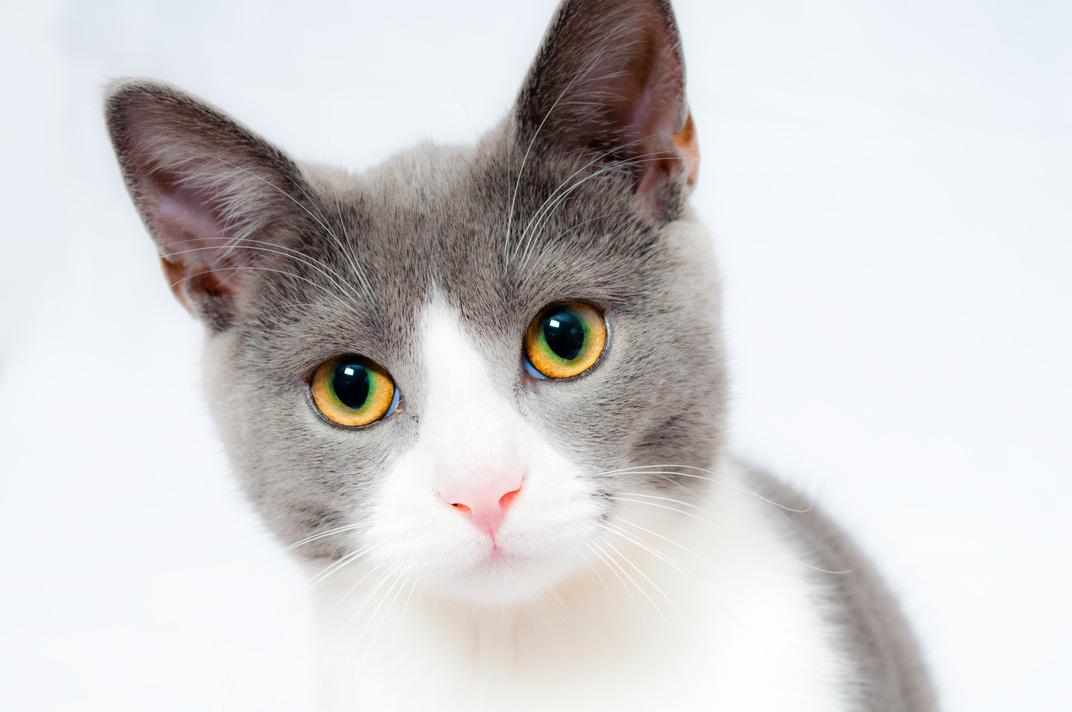
连续
lián xù
continuous / in a row / serial / consecutive
卷
juǎn to roll up / roll / classifier for small rolled things (wad of paper money, movie reel etc)
灵活
líng huó flexible / nimble / agile
受伤
shòu shāng
to sustain injuries / wounded (in an accident etc) / harmed
神奇
shén qí
magical / mystical / miraculous
转动
zhuǎn dòng to turn sth around / to swivel
⼸
Gōng surname Gong
竟然
jìng rán
unexpectedly / to one's surprise / in spite of everything / in that crazy way / actually / to go as far as to
“让” means “to cause” ,can be followed by a pivotal element. The similar word is “使” , but “使” usually use in written chinese but “让” can be use both in wirtten and spoken Chinese.
He always cries, is there any way to stop him from crying?
b
We should laugh often, so that we can keep ourselves young and not easy to grow old.
TEACHER'S NOTE TEACHER'S NOTE TEACHER'S NOTE
When I was young, I heard that cats have nine lives, and they won’t get themself injured even they jump from a high place After reading this article, we know why cats are so amazingl! Today's grammar point is two simple Chinese characters: 使and 让. These two characters often appear in our expressions. They are the basic grammar of our Chinese expressions. I believe that everyone can use these two characters to express yourself well ! Keep learning !
Intermediatelevel 5Mins
Healthy living is vital to have a well-rounded life and sports are a great way to get exercise while having fun at the same time. Sports are very popular and a few crowd favorites are yoga, outdoor cycling, andzumba.
Yoga is a great way to slow down with gentle movements and methodical breathing It notonlyisagreatwaytolose weight, but can also contribute to stress relief and can give a boost to your mood. Outdoor cycling is for those who enjoy exercise with a view It will get you outside and elevate your heart rate foraneffectiveworkout
These aren’t the only popular sports, as there are many, what is important is to find the ones that you truly enjoy!


 Editor:Abigail
Editor:Abigail
问题。尊巴的⾳乐⾮常欢乐, 也很有节奏感。很多⼈喜欢跳 尊巴都是因为这个原因。⼈们


跳完尊巴都

健康
jiàn kāng health / healthy 欣赏
xīn shǎng
to appreciate / to enjoy / to admire
提前
tí qián
to shift to an earlier date / to do sth
ahead of time / in advance
合适
hé shì
suitable / fitting / appropriate
感冒
流⾏
liú xíng
(of a contagious disease etc) to spread / to propagate / (of a style of clothing, song etc) popular / fashionable
锻炼
duàn liàn
to toughen / to temper / to engage in physical exercise / to work out / (fig.)
to develop one's skills / to train oneself

gǎn mào
to catch cold / (common) cold
担⼼
dān xīn
anxious / worried / uneasy / to worry / to be anxious
压⼒
yā lì pressure
语法:不仅...还/也/⽽且...
“不仅 还/也/⽽且 ” 的意思是not only but also 表⽰递进关系
“不仅 A 还/也/⽽且 B” shows the progressive relationship between A and B.
Structure:
When the subjects of two clauses are the same :sub + 不仅...还...
运动不仅可以让我们的⾝体变得更健康,还可以让我们看起来更漂亮。
When the subjects of two clauses are not the same :不仅+sub…sub+也
不仅中国⼈喜欢喝茶,⽇本⼈也喜欢喝茶。
Example:
a 这杯咖啡不仅便宜,还很好喝。
This cup of coffee is not only cheap, but also delicious.
b. 不仅我会说英⽂,我爸爸和妈妈也会说中⽂。
Not only can I speak English, but my father and mother can also speak Chinese.
TEACHER'S NOTE TEACHER'S NOTE TEACHER'S NOTE
喜欢运动的你⼀定也喜欢这篇⽂章吧!⽂中介绍了三种流⾏的运动⽅式,还告诉我们运动
If you like sports, you must also like this article! The article introduces three popular ways of exercising, and also tells us the benefits of exercising The use of " 不 仅 ⽽ 且 " is very practical in life. Now try to talke about one of your favorite sports !.Please try to use "不
...
且 " to tell us how great the game really is!

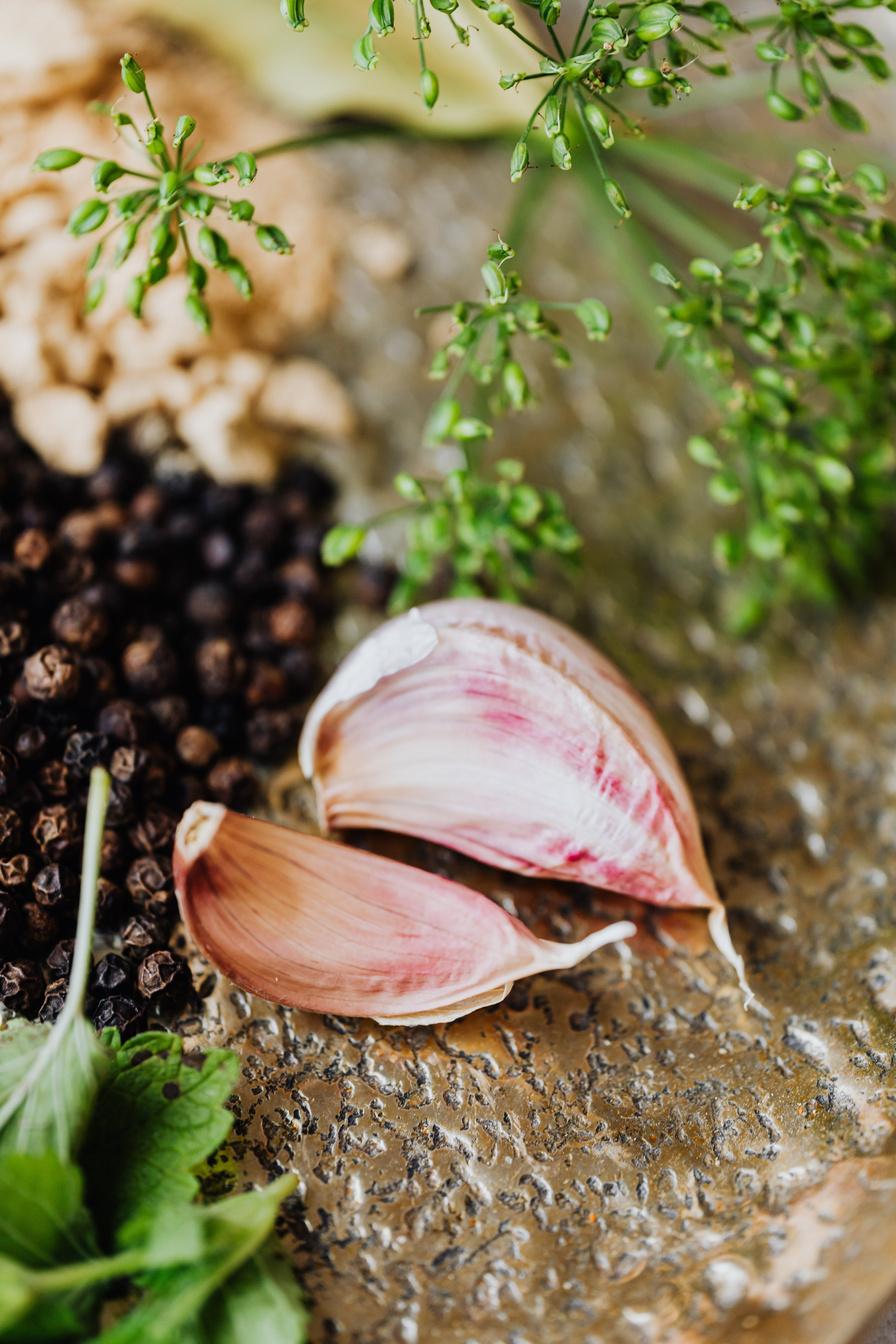
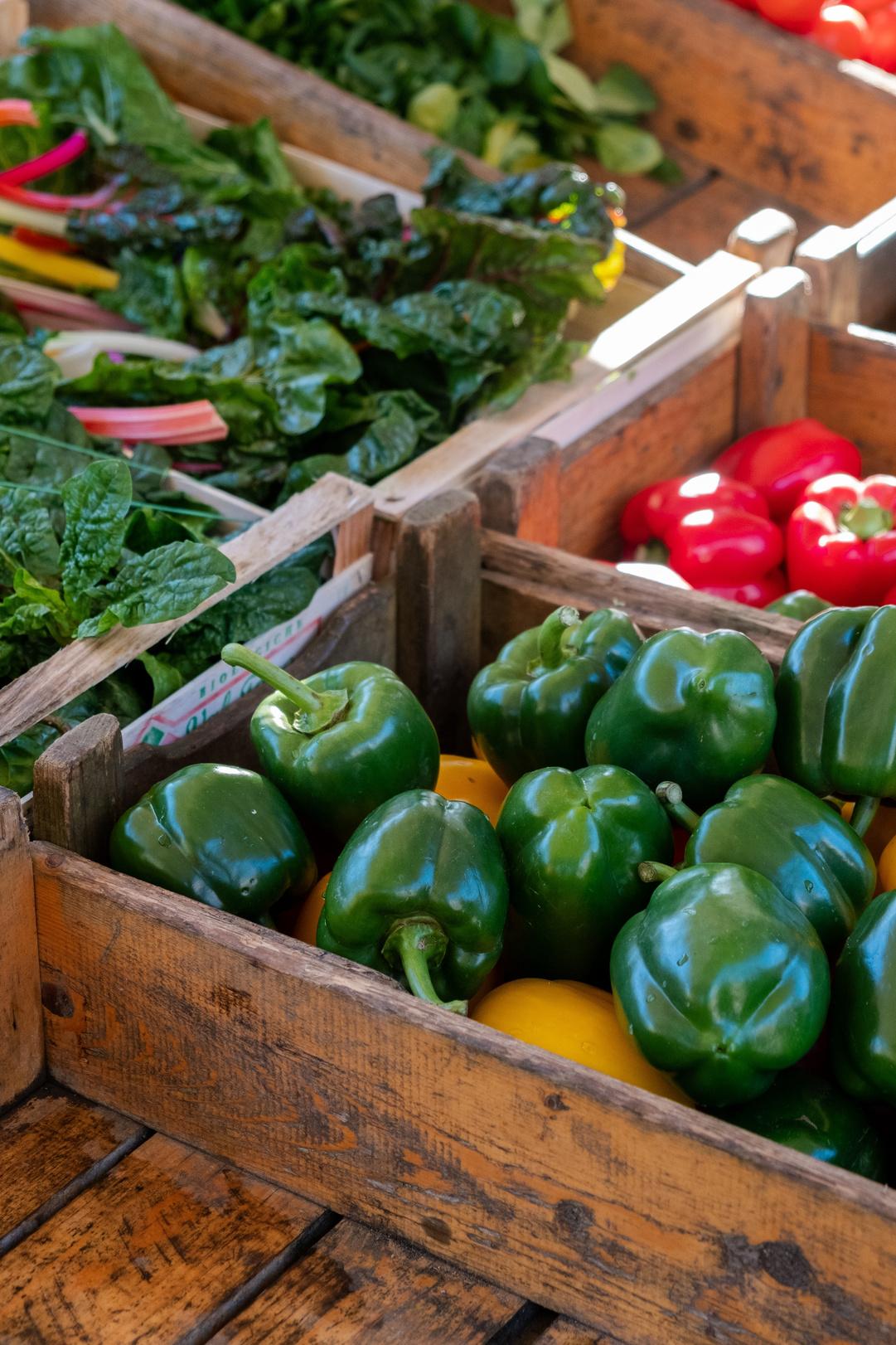



5
SEASONING TIME 3 10
Have you ever looked in the fridge trying to find something to eat but only saw very few items? In this article, when thinking about what to have for lunch, Kevin realizes they only have potatoes and green peppers. Thinking he has to go to the supermarket, Dada reassures him that he makes fried potatoes with green peppers. Kevin is intrigued and wants Dada to teach him. It goes to show that you can still make something delicious with a few ingredients and a little creativity! Editor
Q1: 说⼀说你们国家会⽤⻘椒或者⼟⾖做什么美⻝?
Q2: 为什么要把切好的⼟⾖泡在⽔⾥?
达达和凯⽂在想中午吃什么。达达家⾥只有⼀个⼟⾖和⼀个 ⻘椒了。
凯⽂说:“我们去超市买菜吧,⼟⾖和⻘椒不适合⼀起炒。 ”
达达笑了笑说:”那是因为你没有吃过我做的⻘椒炒⼟⾖,
其实⼟⾖和⻘椒⼀起炒很好吃。 “
”真的吗?你可以教我吗?“


凯⽂很开⼼地说。达达说:”没问题!“
准备什么?
⻘椒 1个 1 green pepper
⼟⾖ 1个 1 potato
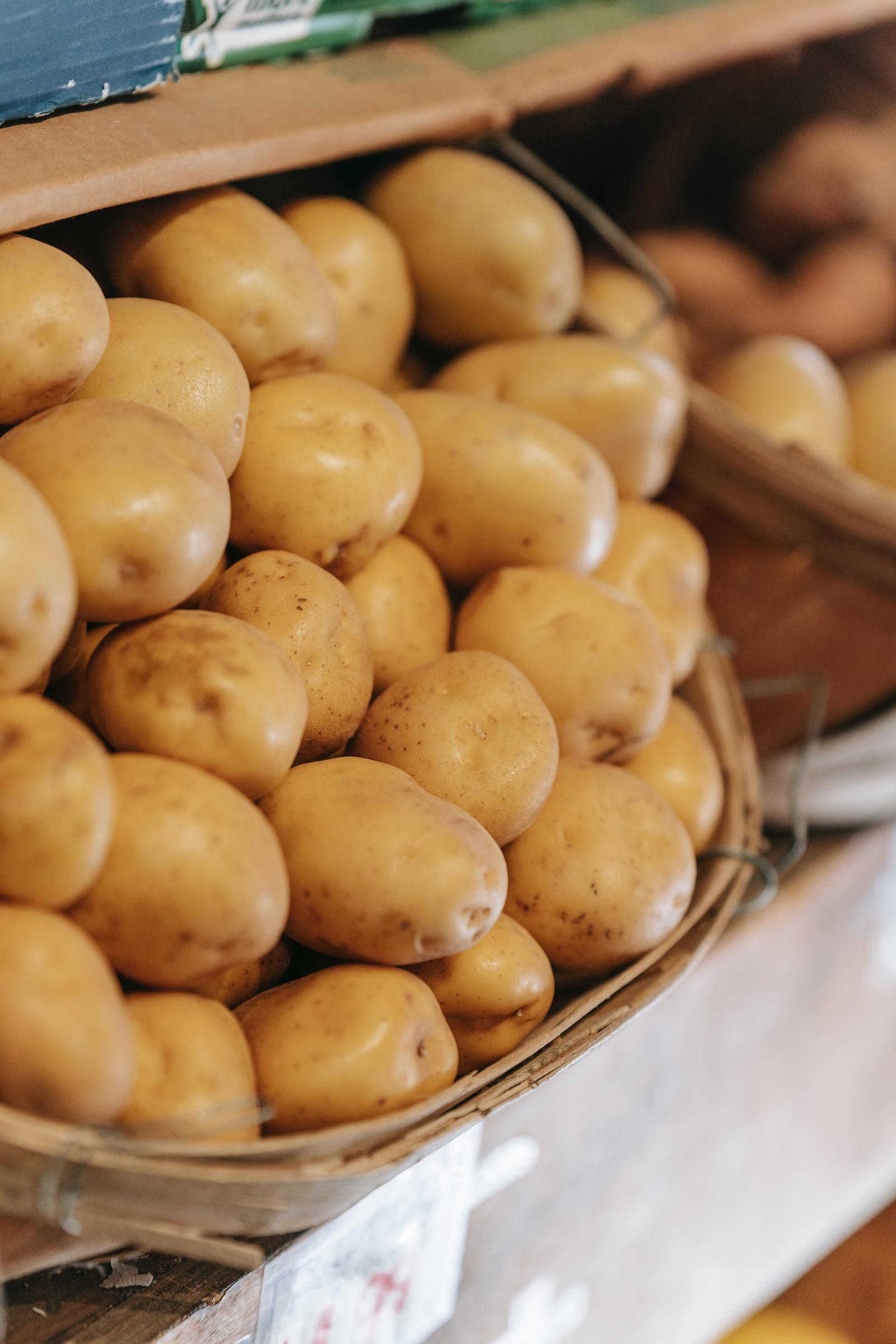
蒜 2瓣——2 cloves of garlic
油 10克 10g oil
盐5克 5g salt
酱油3克 3g soy sauce
怎么做呢?
达达和凯⽂先把⼟⾖和⻘椒洗⼲净,去掉⼟⾖的⽪和⻘椒的籽。然后达达把⼟⾖和蒜切成 ⽚ ⽚


的,⻘椒切成丝。
这时,达达把切好的⼟⾖⽚放在冷⽔⾥。


⼗分钟以后,⼟⾖⾥的淀粉都进到⽔⾥了。⼟⾖没有了淀粉,炒的时候就不容易碎了。

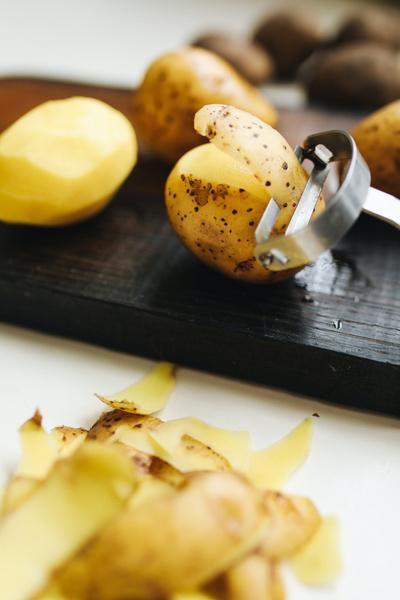

接下来就可以开⽕炒了。
达达把⽕打开,调到中⽕。然后把10克的油放到锅⾥,10秒以后油就热了。
然后,达达把蒜⽚放到锅⾥,炒10到15秒。再把⼟⾖放到锅⾥,炒1分钟。
最后,达达把150毫升的⽔、5克盐和3克酱油放进锅⾥ 起煮2分钟。
等⼟⾖的颜⾊变成深⻩⾊时,⼟⾖就熟了。这时,就可以把⻘椒放
⻘椒
qīng jiāo Capsicum annuum / green pepper
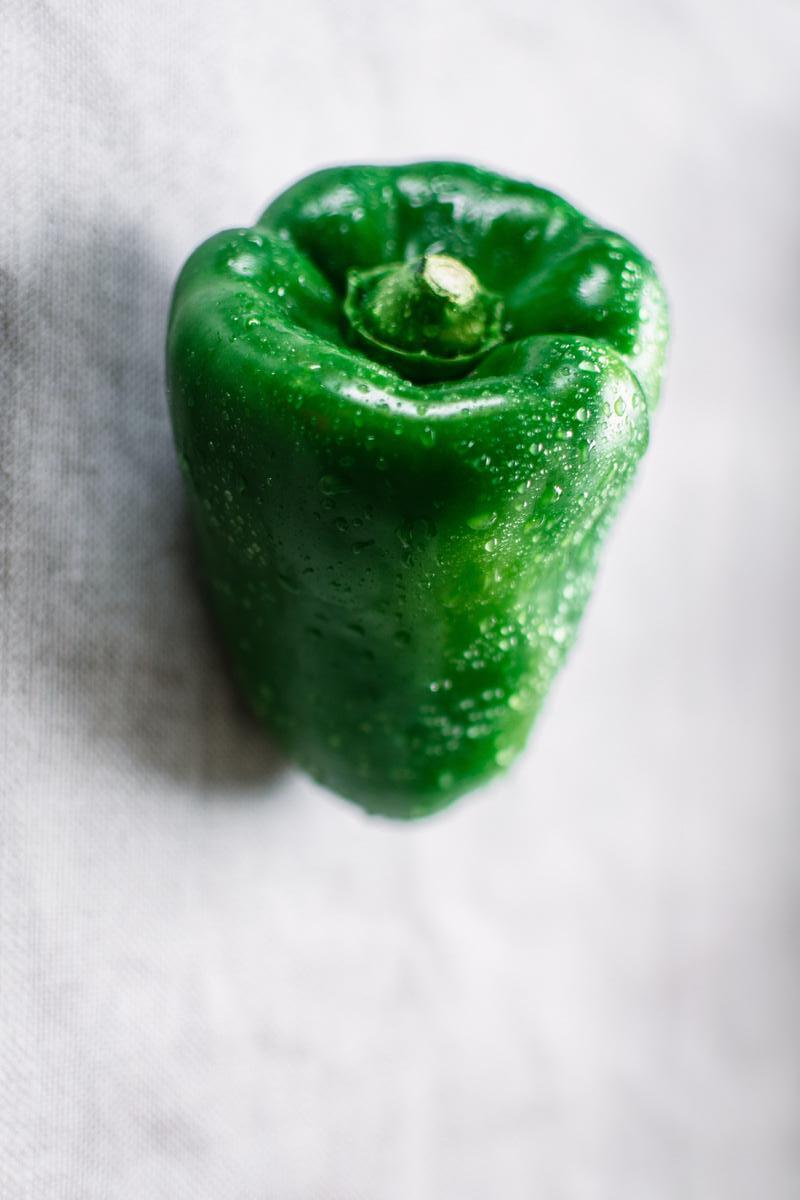
超市 chāo shì
supermarket / abbr. for 超級市場|
超级市场 其实
qí shí actually / in fact / really ⼲净
gān jìng clean / neat 籽 zǐ seeds 碎 suì

to break down / to break into pieces / fragmentary
炒 chǎo
to sauté / to stir-fry / to speculate /
to hype / to fire (sb)
语法:就+v/adj
“就+V ” 和“就+adj ” 都表⽰短时间以内将要发⽣, It means something will happen in a short time.
Structure:
“就+V...” or “就+adj…”
Example:
a. 凯⽂和达达做好菜就开始吃了。(V)
Kevin and Dada started to eat as soon as they finish cooking
b. 10秒以后油就热了。(adj)
After 10 seconds the oil will be hot
今天你学会了这道新的美⻝⻘椒⼟⾖⽚了么?这可是我最爱吃的 道菜!⼟⾖和⻘椒
Have you learned this new gourmet stir fired green pepper and potato today? This is my favorite dish! Potatoes and green peppers are two very common foods in Chinese cuisine. These two ingredients are not only delicious, but also very nutritious. In the article, we have many grammar points: 就 +V/adj, which means something that will happen in a short time, read the article several times, and you will learn it. Finally, I also hope that you can share this delicacy with your friends and try to make it yourself
You’ve probably experienced a yawn after having just watched someone else do so. Why is yawning contagious though? Yawning is said to be received by the brain as an emotion. Much like when you see your friends smile or laugh, you happen to smile along with them. Our brains have this habit of imitating so when we see someone yawn we tend to do the same, the same happens even if we just hear someone yawn.

So if you’re having difficulty sleeping, watch videos of someone yawning! It will cause you to yawn and signal to your body that you’re tired and you may have an easier time falling asleep.
 Editor:Abigail
Editor:Abigail
看 到 别 ⼈ 哭 了 , 我 们 也 会 觉 得 难

过。 “困”其实也是 种情绪。在你没有发现的时
候,你也能感觉到“困”的情绪,所以你也会跟着
别⼈打哈⽋。
另外,⼤脑喜欢模仿。
⼩时候,我们跟爸爸、妈妈学习说话、吃东西。



所以,我们的⼤脑 直就有模仿的习惯。当我们
看到别⼈打哈⽋,⼤脑会告诉我们跟着做。
⽽且,如果只是听到,但没有看到别⼈打哈⽋,
⼤脑也 样告诉我们跟着做。⽐如我们和朋友打
电话
哈⽋
hā qian yawn

传染
chuán rǎn
to infect / contagious
情绪
qíng xù
mood / state of mind / moodiness
困
kùn
to trap / to surround / hard-pressed / stranded / destitute
⼤脑
dà nǎo brain / cerebrum
模仿
mó fǎng
to imitate / to copy / to emulate / to mimic / model
偶尔
ǒu ěr
roccasionally / once in a while / sometimes
语法:...或者...
“或者”是 个表⽰选择关系的连词,it means “or” but it can be only used in declarative sentence.
Structure:
A或/或者B
It means either A or B ,you can choose any of them.
Example:
a 我喝咖啡或者茶都可以。
I can drink either coffee or tea。
b. 打⻋或者坐地铁都可以到那⾥。
You can get there either by taxi or subway
TEACHER'S NOTE TEACHER'S NOTE TEACHER'S NOTE
读了这篇⽂章之后终于知道为什么我们会跟着别⼈ 起打哈⽋了。原来是因为我们的
After reading this article, I finally know why we yawn with others It turns out that our brains like to imitate, and we start learning Chinese from imitation, so let's imitate and read this text together from now on!


and choose to read the articles start from easy to difficult. Our articles in this issue include Chinese culture and customs, sports and health, Chinese food, Chinese slang and some fun fact. You can always find an article that suits your needs.

After finishing your reading, I think you may know why Chinese people like to treat guests and when we can treat guests, so as to help you better understand Chinese customs and habits.
You also learned how to make Potato Slices with Green Pepper, you can try to make this delicacy at home.
Finally, I hope that everyone not only learn new grammar and new vocabulary, but more importantly, you can better understand Chinese culture and the enthusiasm and friendliness of Chinese people.
Editor:Jingjing1 请客 qǐng kè to give a dinner party / to entertain guests / to invite to dinner
2 东西 dōng xi thing / stuff / person
3 重要 zhòng yào important / significant / major
4 付出 fù chū to pay / to invest (energy or time in a friendship etc)
5 如果 rú guǒ if / in case / in the event that
6 礼物 lǐ wù gift / present
7 以后 yǐ hòu after / later / afterwards / following / later on / in the future
8 健康 jiàn kāng health / healthy
9 流⾏ liú xíng (of a contagious disease etc) to spread / to propagate / (of a style of clothing, song etc) popular / fashionable 10 压⼒ yā lì pressure 11 锻炼 duàn liàn to toughen / to temper / to engage in physical exercise / to work out / (fig ) to develop one's skills / to train oneself
12 欣赏 xīn shǎng to appreciate / to enjoy / to admire
13 提前 tí qián to shift to an earlier date / to do sth
shí actually / in fact / really
o to sauté / to stir-fry / to speculate / to hype / to fire (sb)
fragrant / sweet smelling / aromatic / savory or appetizing / (to eat) with relish / (of sleep) sound / perfume or spice / joss or incense stick
dao flavor / smell / hint of
tool / instrument / utensil / means (to achieve a goal etc)
surname Long
ripe; mature / thoroughly cooked; done / familiar; acquainted / experienced; skilled / (of sleep etc) deep; profound / also pr [shóu]
introduce (sb to sb) / to give a presentation / to present
roll up / roll / classifier for small rolled things (wad of paper money, movie reel etc) 52
n dòng to turn sth around / to swivel
/ to one's surprise / in spite of everything / in that crazy way / actually / to go as far as to
to miss (train, opportunity etc) 56
regret / to regret / to be sorry that 57 惊讶 jīng yà amazed / astonished / to surprise / amazing / astonishment / awe
58 热闹 rè nao bustling with noise and excitement / lively
59 独⽴ dú lì independent / independence / to stand alone 60 享受 xiǎng shòu to enjoy / to live it up / pleasure
61 当下 dāng xià immediately / at once / at that moment / at the moment 62 击剑 jī jiàn fencing (sport) 63 颠覆 diān fù to topple (i.e. knock over) / to capsize / fig. to overturn (a regime, by plotting or subversion) / to undermine / to subvert 64 认
zhī cognition / cognitive / understanding / perception / awareness / to be cognizant of / to recognize / to realize
65 特⽴独⾏ tè lì dú xíng to be unconventional / independence of action 66 国
价
nationality
ān dìng firm / steady / staunch / resolute
zhí value / worth / fig values (ethical, cultural etc)
In the next issue, the following questions will be answered:

Why do ancient Chinese like to "travel" to Yangzhou in March?

Who is Tian Ji that loves horse racing? What's the food called "Qing Tuan"?
Is it hard being gay in China?
Who are your favorite AI celebrities?
Which part of the plane is the weakest?
How does a giraffe walk?